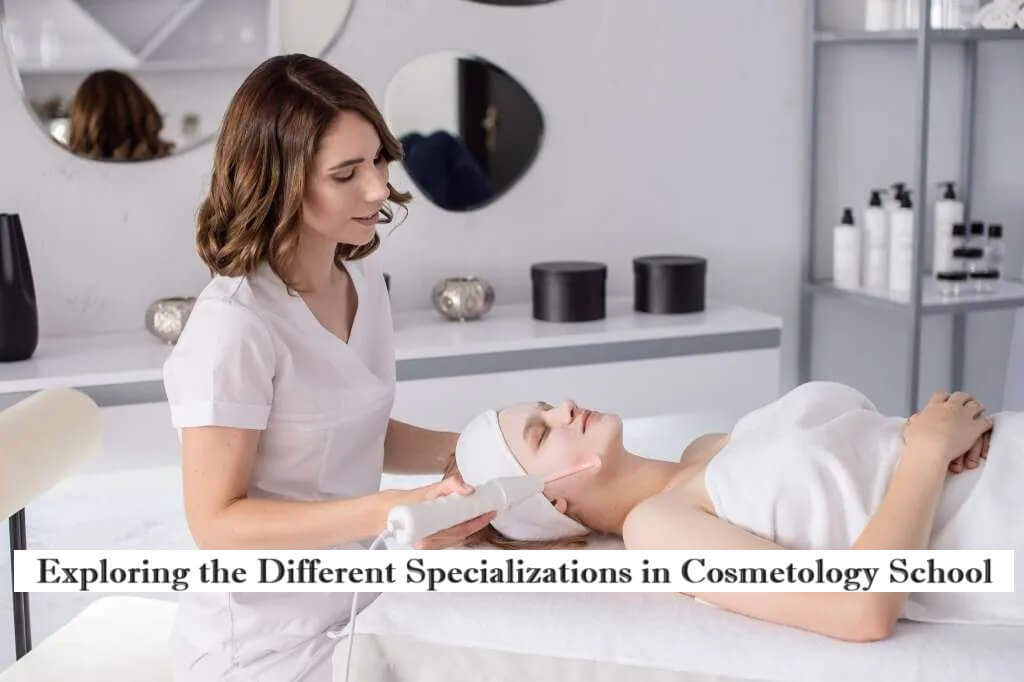Aspiring cosmetologists don’t need a bachelor’s degree; they attend vocational schools to earn their diploma and state licensure. These schools often offer specific courses for each cosmetology specialization.
Exploring the Different Specializations in Cosmetology School
For example, a color specialist focuses on hair coloring and works in larger salons where they can specialize their skillset. Here are the different types of cosmetology specializations:-
Hair Styling
When students enter cosmetology school, they begin by learning basic theory and technique. They do this in the classroom with their instructor’s guidance and support. Then, they move on to mannequins and clients for hands-on training, where they practice their skills under an expert’s eye.
Hair coloring Students learn to work with various colors and how to mix them for the best results. They also learn about chemical treatments like perms and relaxing and the safety practices for working with chemicals on hair.
Makeup Cosmetology schools teach makeup techniques in various styles, including bridal, photography, and special effects. They also cover the tools and products used in each style, selection, and usage.
Manicuring
The demand for cosmetologists, including hairdressers, stylists, manicurists, and pedicurists, is expected to grow 13 percent through 2026. Cosmetology schools often include education in tool sterilization, infection control, and other safety practices for all specializations.
Finding a program that offers the most interesting specialty and fits your lifestyle and budget is important. Some programs are offered as a certificate or diploma, while others are available with an associate degree and provide additional study in management skills. All programs offer a variety of hands-on experiences in student salons where students get to practice the many different services that fall under the cosmetology umbrella.
Nail Care
Cosmetology programs typically include both theory-based classes and hands-on training. Theoretical courses cover anatomy, physiology, hair, and skin disorders.
Some states require cosmetologists to pass a licensing exam before they can work professionally. The license requirements vary by state, usually including passing both a written and practical exam.
It will ensure that the school meets certain academic and institutional requirements, including providing students with quality instruction. It will also qualify you to apply for student grants and loans.
Skin Care
Cosmetology and esthetics are similar but differ because cosmetology training covers a broader range of beauty services, while estheticians only offer skin care. The curriculum for each specialty varies, but most programs include education on hair styling, nails, basic makeup application, and health and sanitation requirements.
Many students enroll in a cosmetology program to meet state licensure requirements for salon or spa work after graduation. Others opt to use their license as a foundation for their independent business.
The requirements for cosmetology school vary by school and state but generally include a high school diploma or GED certificate, age, and licensing requirements. Many beauty schools also offer financial aid.
Makeup
For example, a student who wants to specialize in makeup will take courses that cover makeup techniques, makeup product knowledge, and color theory. They may also learn to apply various types of makeup, from wedding to costume makeup for plays and movies.
